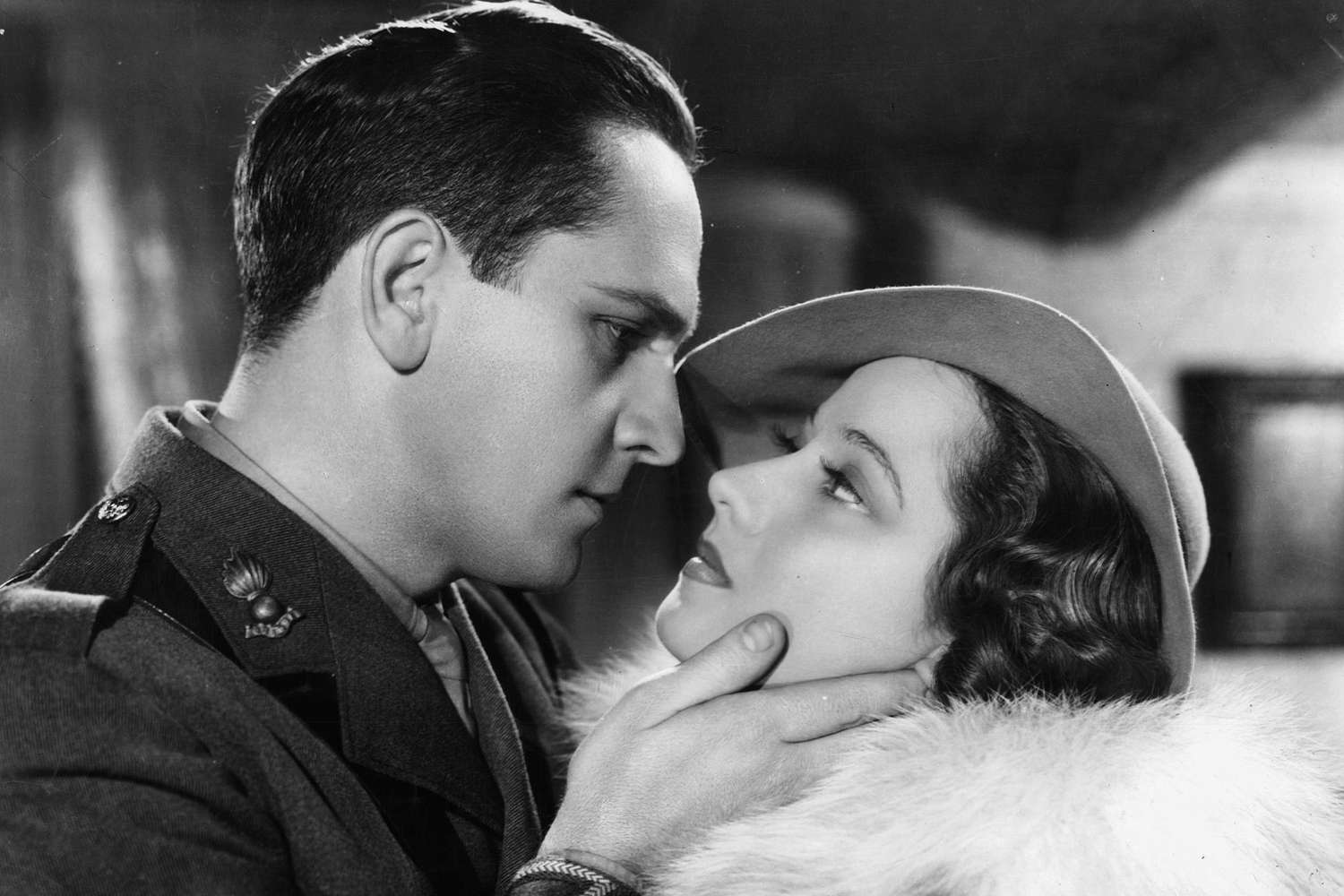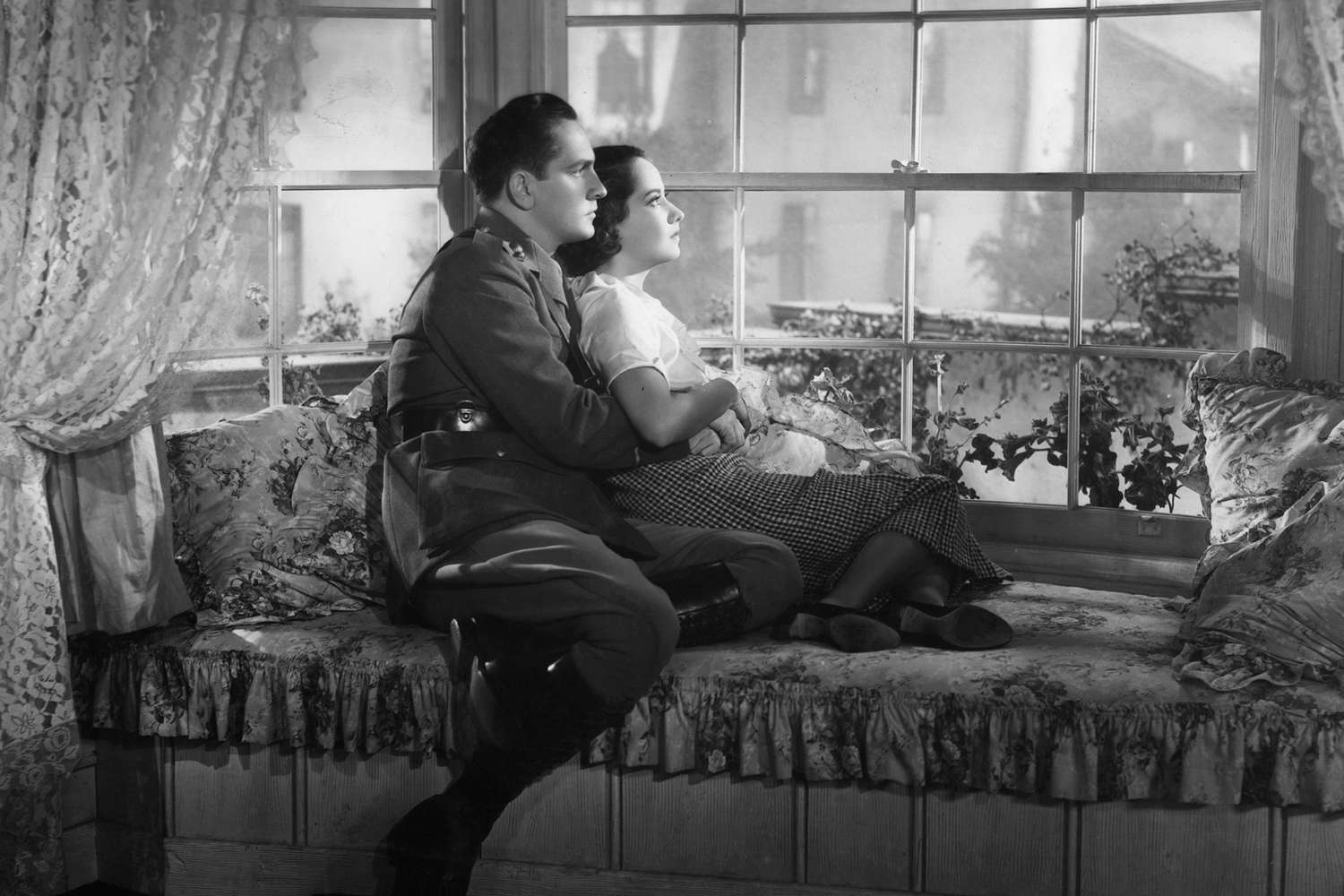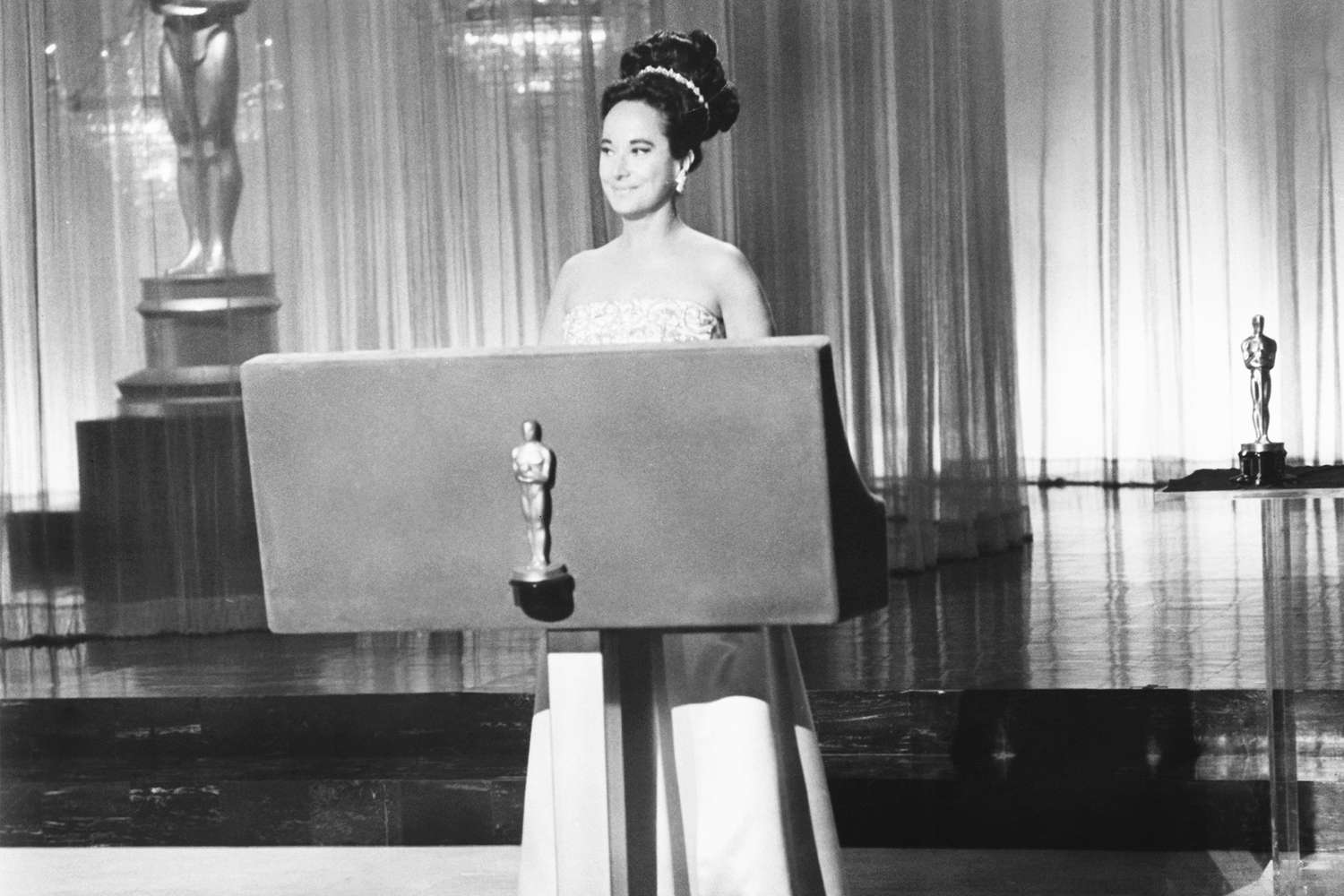International Women's Day - Merie Oberon
The first was a person who did not acknowledge her own heritage, but instead passed for white, biracial actress Merle Oberon, nominated for the 1935 drama The Dark Angel.
"Merle was in a very different Hollywood," says Halley Bondy, who researched and guest-narrated the You Must Remember This podcast episode Passing for White: Merle Oberon. "Merle was in a Hollywood where you had to be white in order to be accepted, in order to win awards, in order to get prestigious roles. Michelle's nomination, aside from the fact that it took forever, is so refreshing to see. We're in a new Hollywood, where Asian cinema is celebrated, and Asian actresses are celebrated. People don't have to hide anymore."
In real life, her identity was as much a performance as the one that earned her an Oscar nomination. Though she claimed she was from Tasmania, Australia, throughout her career, Oberon was born in India to a Sri Lankan mother and Anglo-Irish father. Her family line also included Māori ancestry. Further complicating matters, Charlotte, the woman Oberon called her mother, was actually her grandmother. Oberon was, in fact, the child of her then 12-year-old half-sister, Constance.
Oberon seemed to have some sense of the pitfalls of her blurry identity from a young age, growing up in poverty and bullied at school for her mixed ethnicity. "She started [passing] as a teenager," says Bondy. "She would do posh British accents and she would try to emulate the British colonizers. But she didn't belong either in either world. She didn't really belong with the elite, and she didn't belong in a traditional Indian country."
 CREDIT: HULTON ARCHIVE/GETTY
CREDIT: HULTON ARCHIVE/GETTY
Oberon moved to Britain when she was 17, and it was film producer (and her eventual husband), Alexander Korda, who helped complete her transformation into a white-passing actress. Born Estelle Merle O'Brien Thompson and using the nickname "Queenie," she was rechristened Merle Oberon by Korda, who cast her in as Anne Boleyn in 1933's The Private Life of Henry VIII.
From there, Korda and Hollywood producer Samuel Goldwyn, who purchased shares of Oberon's contract from Korda, continued to mold her into a star. This included the use of a skin bleaching product that contained high levels of poisonous ammoniated mercury. "They made her last name Oberon to make it seem obscure and vague," says Bondy. "She was unplaceable. Korda helped construct that identity and that look. I don't know if he applied the makeup. I don't know if he was the one who was like, 'You need to look more white.' But I have to assume that since he had so much control over her early film career, he probably played a huge role in that."
Oberon herself was obsessed with maintaining the illusion of whiteness, even having a portrait of her late "mother," Charlotte, painted with lighter-colored skin. Before Charlotte's death, when traveling together, Oberon passed the older woman off as her maid to avoid anyone questioning her origins.
It wasn't abnormal for movie stars to undergo physical transformations at the behest of studios, and often, it was done with the aim of obscuring their origins (Rita Hayworth famously endured electrolysis to raise her hairline and reduce the visibility of her Spanish heritage). But Oberon went to further extremes, lying about her place of birth and lightening her skin color.
 CREDIT: UNITED ARTISTS/GETTY
CREDIT: UNITED ARTISTS/GETTY
"She was billed as exotic, and that was something that they leaned into in constructing her image," adds Bondy. "Exotic was acceptable, but to pinpoint her as half-Māori and Sri Lankan would've been too much. They all liked the image of her being vague — 'Oh, she's from Tasmania,' which nobody knows anything about. She had to live her whole life that way. She never really did have that triumphant moment of coming out and being proud. That was what the studios did. They doctored you into whatever they wanted. If you had talent and presence, they could make you white."
There were Asian actors open about their race during that time, most notably Anna May Wong. But their opportunities in mainstream Hollywood were limited — and they were even denied roles that aligned with their race in favor of white actors in yellowface. Oberon's beauty allowed her to perpetuate the lie that enabled her to flourish in a more explicitly racist film industry than today's.
"She was very convincing and opportunistic," explains Bondy. "She'd been that way her whole life. She learned grit and how to get things from men from her mother. So she had a chance of passing, and the chance of winning white American hearts." Had she embraced her identity, Bondy adds, Oberon never would've been hired by Samuel Goldwyn, much less been nominated for an Oscar.
 CREDIT: UNITED ARTISTS/GETTY
CREDIT: UNITED ARTISTS/GETTY
Bondy claims that The Dark Angel is the film in which Oberon looks the whitest, and certainly, if you compare images of her from earlier projects, there is a noticeable difference.
Arguably, Oberon gives her greatest performance as Cathy opposite Laurence Olivier's Heathcliff in the 1939 adaptation of Emily Bronte's Wuthering Heights. But by that time, Hollywood had grown suspicious of her. Rumors swirled that she'd been a high-class prostitute, and because her British accent slipped regularly, many began to wonder about her origins.
"Wuthering Heights was one of the biggest movies of the year, with a huge budget and nominated for all kinds of awards," says Bondy. "Merle was not nominated that year. Given how Hollywood operated and who got nominated for these awards, there was no earthly reason why she wouldn't get nominated. So you have to think that she wasn't entirely welcome into the Hollywood elite."
By this time, Oberon had also suffered serious damage to her face, both the result of a 1937 car accident and the long-term impact of the bleaching creams and makeups, which resulted in pitting and indentation. The damage was extensive enough that cinematographer Lucien Ballard designed a special light to obscure the blemishes and scars and lend her a luminous glamor. To this day, the light is referred to as an "Obie," in reference to her last name.
 CREDIT: EVERETT
CREDIT: EVERETT
As she aged, Oberon maintained a complicated relationship with her identity. Her final film grappled with the issue: Interval, released in 1973 and produced by Oberon herself, gave her a role as a woman who didn't know the truth of her own origins and tried to outrun them.
A few years later in 1978, Oberon was invited to Hobart, Tasmania, her long-purported birthplace, for a mayoral reception and the naming of a theater in her honor. Oberon traveled there for the tribute, but at the reception, she denied she'd been born in Tasmania and refused to attend any other planned events on her itinerary.
"I think that she was just starting to reckon with everything," says Bondy of that ill-fated trip. "We'll never know if she truly ever reckoned with it. But she grew up not just having to conform, but probably believing on some level that she was inferior. She was deeply uncomfortable with [who she was]. Because when you're beaten over the head with racism nonstop, you probably internalize it to some degree."
The truth of Oberon's origins was never disclosed in her lifetime, and she died in 1979 at the age of 68 still maintaining that she was white. It wasn't until the publication of a biography in 1983, Princess Merle: The Romantic Life of Merle Oberon, that the truth was revealed to the public when the authors located her birth records in India, where she was born in 1911.
 CREDIT: JOHN SPRINGER COLLECTION/CORBIS/CORBIS/GETTY
CREDIT: JOHN SPRINGER COLLECTION/CORBIS/CORBIS/GETTY
Where does that leave Oberon's legacy today? Since Michelle Yeoh was first announced as an Oscar nominee, Oberon's name has recirculated with the designation as the first Asian to compete for Best Actress, a record many have disputed because of her obfuscation of her identity.
Yeoh herself has been careful to credit the women and pioneers on whose shoulders she now stands. Should that include Merle Oberon?
"Absolutely, she belongs in that pantheon," says Bondy. "She was a real pioneer even though nobody really knew that at the time. And she probably didn't think about it at the time because her race was shameful [to her]."
But what would Oberon make of her place in the history books, and the fact that it took almost 90 years for another Asian woman, this one vociferously proud of her identity and the ways it has shaped her on-screen presence, to get an Oscar nomination?
"I think she would be stunned to learn that her origin is actually an asset," speculates Bondy. "She would have a lot to wrestle with, because she was very disconnected from reality. She would need a lot of therapy. But I think that she would ultimately be very proud and embrace it, because she loved the spotlight."